Advice for freshman dancers …
By Deborah Searle.
So you’ve just started college? You’re excited, but nervous and wondering what to expect?
Dance Informa spoke with leading professors and college dance instructors from across the country to give you the advice you need.
What can dance students expect in their first semester at college?
Emily Yewell-Volin, Instructor in Dance, Agnes Scott College & Teaching Specialist, Emory University, GA
A freshman dancer can expect to complete placement class either while auditioning for acceptance into a gated program or upon arrival at a non-gated program of study. The results of these placement auditions and subsequent casting auditions for performance ensembles are often a source of frustration for first year students. Do not be discouraged if you find yourself studying in the lower technique levels, placed in a second cast role or understudy position for performance work. Rather, focus on how ideal it is to study among such highly accomplished dancers. Concentrate on how much you will improve during the course and use this motivation to help maintain focus toward your goals.
Remember, you are enrolled to absorb all the lessons your experienced faculty will offer. Keeping yourself pliable and healthy, respectful, focused and hard working will allow you the best opportunity to successfully realize and shape your future in the competitive field of dance.
Laura Morton-Zebert, Associate Professor of Dance, Belhaven University, MS
Entering a collegiate dance program can be exciting and adventurous. Dance students will be adjusting to new experiences, relationships, responsibilities, and a very busy daily schedule. Dance students attending Belhaven University can expect our dance technique curriculum to emphasize proper alignment and placement, technical proficiency, and expressive qualities within their daily ballet and modern classes. Incoming dance students will spend about 22-23 hours in active dance technique classes per week, as well as general education and additional non-studio dance courses.
Professor Vincas Greene, Chair of Dance, Brenau University, GA
New students will have to get ready to take responsibility for much of their own lives – setting up a daily schedule of classes, eating, rehearsing, sleeping (yes, this is super important to a first year dance student), studying, waking up, social activities and other items. Get ready for new friends, lots of freedom that you’ve not experienced before (and have to make decisions about), and facing challenges. You will be tired and sore!
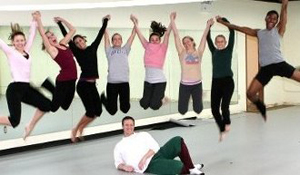
Professor Vincas Greene with dance students at Brenau University
Steve Rooks, Chair and Resident Choreographer of Dance at Vassar College, NY
As with most dance programs, students will have the opportunity to take introductory to advanced levels of technique classes taught by an experienced faculty. At Vassar College (as with many institutions of higher education), all of the faculty have been (or are currently) active in the profession. Students will often be required to supplement their class experience with outside reading, video and writing assignments. Participation in department-sponsored events are usually required, or highly recommended.
Cynthia Newland, Associate Professor of Dance and Chair of Dance, Belhaven University, MS
A freshman can expect to manage a schedule where they will take dance courses along with academic courses. Sometimes this means that the student starts their day with an 8am academic course, then attend their ballet and pointe class, followed by a quick lunch. Then he/she is back to an academic class followed by a modern class, improvisation and rehearsals. On selected days a student may choose to take an evening academic course as well. Their schedule is full and there is an adjustment to make for balancing course work, new friends, homework , nutrition and rest. The students who make a daily schedule and follow it often experience the most success and fulfillment during their college years.
How can dancers prepare themselves for freshman year?
Steve Rooks
Taking part in a summer dance intensive or clinic will help keep students prepared for the demands of ongoing technique classes. It is also always a good idea to see live performances as often as possible.
Vincas Greene
When you enter college you need to have an open mind that’s ready to learn. Think about and experience new and different approaches to your studying and dancing. Why come to college if you’re not open to thinking about trying the new? Take as many dance classes as you can over the summer, bring plenty of new tights, bring a first-aid kit for your feet and be prepared to wear out your shoes.
Laura Morton-Zebert
To cite the Belhaven University website, students can do the following to better prepare themselves for their collegiate career:
Attend as many dance performances as you can, view television documentaries and films on dance, read about dance in newspapers, magazines, books, and on the web and familiarize yourself with key choreographers of the 20th century. Research contemporary dance artists and current dance trends, visit internet sites of different dance genres, broaden your skill base (discover new ideas and approaches by taking from different teachers) and explore other dance forms.
Emily Yewell Volin
Realize that a healthy body and a capable mind are the best tools for success. Dance students must arrive to the program in strong physical and mental condition in order to handle the rigors of placement classes, auditions, daily technique and academic classes, rehearsals, study time, nutrition, and rest. Therefore, a solid course of summer dance study complemented with independent reading is imperative for a successful first semester freshman experience.
Furthermore, utilize the summer before you begin the college program to learn how to care for yourself; even if you will be living at home. Once in college, a person is ultimately responsible for his/her own sleep schedule, dining habits and recreational activities.
Next, get organized. Establish a calendar keeping system that works for you and eliminate procrastination from your life. Be certain your plans for transportation to and from campus are reliable and employ an alarm clock.
Keep a dance journal that helps you focus for technique classes and rehearsals. Outline your daily and long term goals as well as corrections given to the class or specifically to you. Allow yourself time to add to and reflect upon these notes daily. This self discipline helps direct and accelerate your training efforts.
Cynthia Newland
Students who investigate a variety of forms of dance prior to arrival to college are more informed about their career options and what has happened in the past and is currently occurring in the field of dance. There is often freshmen dance orientation courses offered to bring a breadth of awareness to incoming students to the growing field of dance. It is also very important to keep an open mind about the experience the dance students will have. There are numerous styles of dance, teaching methodologies and approaches to training. Students who are teachable and open to the new experiences have the greatest likelihood of growing in their technical ability and artistry.
How should students balance books and ballet?
Steve Rooks
While it is always important to be fully engaged in your technique classes, it is equally important for students to remember that they are pursuing a baccalaureate degree, and will be held accountable for all of the attendant responsibilities. Time management and common sense are two primary factors in guaranteeing success in that pursuit!
Laura Morton-Zebert
Dance majors get the opportunity to not only excel in their art form but they also obtain a well-rounded education in all areas of academia. With my incoming freshmen, I encourage my students to write out their class schedule that includes study time. I highly recommend that my students stay up-to-date with their reading and assignments. It is always beneficial to come to class prepared because this will be less stressful and the learning process much more enjoyable.
Vincas Greene
As a dance student, you will be working in your major from day one. Your friends in other majors will be clearing out their general university requirements in the first two years but you will have to spread them out over your entire college life. It may feel like you are behind, but you are just following the path of the performing artist. Remember why you are at college as you make decisions and seek the advice of the dance faculty. They want to help you succeed.
Cynthia Newland
Students that allow time for their dance training, academic classes and homework have success in balancing and get the most out of their college education. It is best to allow more time than you think you will need for studies and don’t wait until the night before to complete assignments. Make sure that you take time to reward yourself for the many accomplishments. Dancers tend to be very hard on themselves and having realistic and obtainable goals will aid each student in seeing how much they are growing and learning.
Emily Yewell Volin
All dance programs will offer an overview of academic courses in the major; often including but not limited to, dance history, kinesiology, choreography, pedagogy, careers in dance, Labanotation, and critical writing in the field, as well as the academic institutions’ required core curriculum. Realize a successful dance artist is one who possesses a broad knowledge of dance topics and skills. Furthermore, your college or university’s core curriculum is equally as critical to your long term success as the studies within your dance major.
Understand your core curriculum courses are essential to your education as a dancer and a lifelong learner. Stay open to the possibility of loving the diversity of classes available at your institution and realize they are not a distraction to your dancing. You may find a particular class inspires and informs your dancing and creativity in ways you never imagined. Opportunities are endless when students embrace higher education as a time to explore how they experience dance within the broader context of their experiences with the world.
Commit your Freshman year to discovering and focusing on the work you want and need to do while en route to becoming the educated dance artist you intend.
The experts…
Steve Rooks
A Graduate of Dartmouth College, Steve Rooks began his training in Washington D.C. with Jan Van Dyke and Greg Reynolds. He continued his training at the Alvin Ailey Dance Center in New York, where he danced with the Alvin Ailey Repertory Company. He later joined the Martha Graham Dance Company in 1981, performing with the company for over a decade, eventually being promoted to the rank of Principal Dancer. Mr. Rooks is currently Chair and Resident Choreographer of Dance at Vassar College, and has been a guest teacher for several international centers including the Alvin Ailey Dance Theater, the Martha Graham Dance Company, Ballet Nacional de Mexico, The MasterWorks Festival, and the International Summer School of Dance in Sydney, Australia. He was also the recipient of the 2004 Choreographic Award from Hubbard Street Dance Chicago II. http://dance.vassar.edu/
Vincas Greene
Vincas Greene is an award winning professor at Brenau University where he is the Chair for the Department of Dance (NASD accredited) and Director of Bighouse Dance Theater. Vincas has taught throughout the Southeast, in Washington and California and was recently a guest teacher at Nanyang University in China. His choreography has been set on the Brenau Dance Ensemble, the Gainesville Ballet Company, Theatre Ballet of Spokane, Room to Move, Santa Clarita Repertory Theatre, Pebblebrook Performing Arts High School, the Avondale High School of Performing Arts and others. He received his MFA from California Institute of the Arts where he was invited to dance in the CalArts Dance Ensemble. In his home state of Washington, he performed the choreography of several artists including Mark Morris, Erin Matthiessen, and Long Nguyen. In New York, Mr. Greene danced with Pat Catterson and Dancers and Peter Healey’s Mesopotamian Opera Company and received scholarships to study at the Merce Cunningham Studio. After moving to Atlanta, he danced with the Carl Ratcliff Dance Theatre and several other companies including Robin Williams, the Gainesville Ballet Company and Susan Eldridge’s Red Clay. www2009.brenau.edu
Cynthia Newland
Cynthia Newland received a BFA in Dance from George Mason University and MFA in Dance from Arizona State University. She currently serves as the Chair of Dance at Belhaven University in Jackson, MS. Cynthia has traveled nationally and internationally as a dance artist and teacher using the art of dance in educational environments, churches and the mission field. She has a passion for dance and arts education and was the recipient of the Mississippi Alliance for Arts Education, 2009 Higher Education Award and the Humanities Teacher Award given by the Mississippi Humanities Council. Some of her experiences and dance works involve dancers with varied abilities including those who use wheelchairs, crutches and theseeing impaired. www.belhaven.edu/dance
Laura Morton-Zebert
Laura Morton-Zebert’s background includes extensive training in classical ballet, jazz, and modern from prestigious dance educators, professional performing experience, and years of teaching in professional ballet schools. She also holds a Bachelor of Science degree in Psychology from the University of Houston. Her teaching credentials include serving on the faculties of Summer Arts Session (Ravensburg, Germany), Spectrum Dance Theatre (Seattle, WA), Pacific Northwest School of Ballet (Seattle, WA), Evergreen City Ballet (Auburn, WA) as the Assistant to the Artistic Director, Houston Ballet, Ben Stevenson Academy, Houston Metropolitan Dance Center, and as the Associate Director of Ad Deum Dance Company (Houston, TX). Presently, Laura serves as an Associate Professor of Dance at Belhaven University in Jackson, MS.
www.belhaven.edu/dance
Emily Yewell Volin
Emily Yewell Volin has been teaching in university and college programs since 1998. She earned her MFA from the University of Arizona and also holds a BS in Education from Loyola University Chicago. Yewell Volin currently resides in the Atlanta area where she is an Instructor in Dance in the Agnes Scott College Dance Studies Program. She is also scheduled as a visiting Teaching Specialist at The Emory University Dance Program during the Fall 2010 semester. Emily served as faculty member of the prestigious USA International Ballet Competition Dance School that convened in Jackson, Mississippi, this June and recently completed the creation of a commissioned K-6 dance assembly program in collaboration with Young Audiences Woodruff Arts Center. She is an active board member to The D.A.I.R. Project, the Jazz Dance World Congress, and the Young Audiences Woodruff Arts Center Program Committee. www.emilyyewellvolin.com
www.agnesscott.edu
www.dance.emory.edu


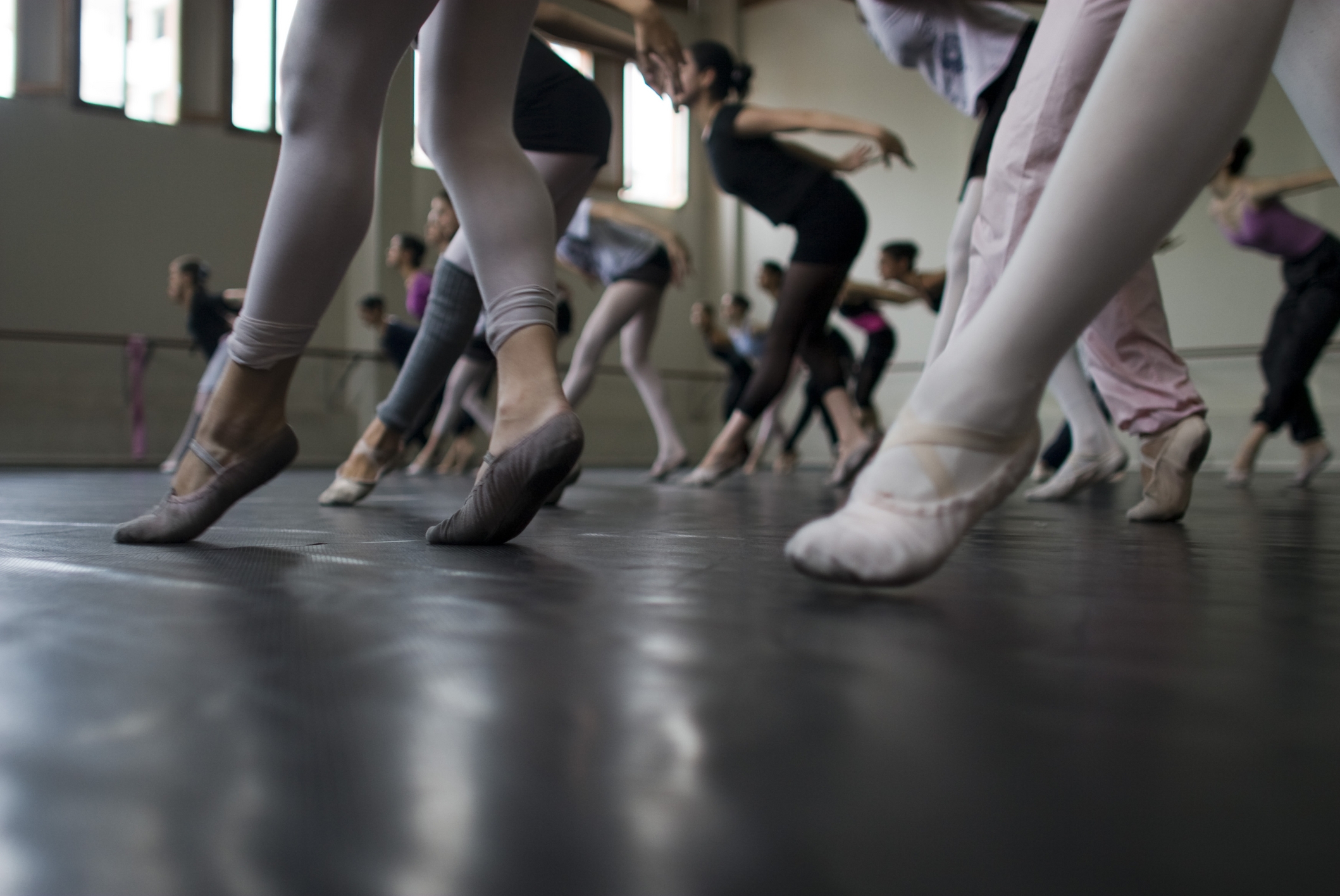
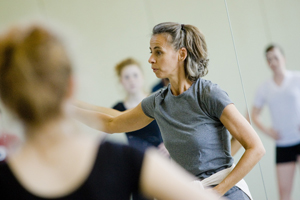





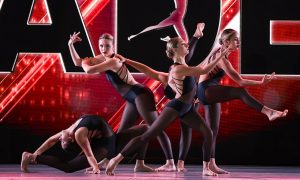

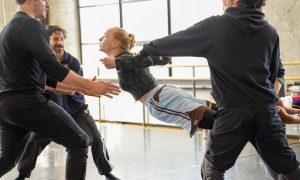

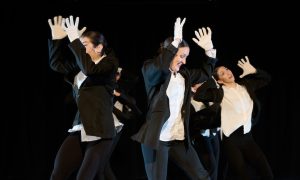

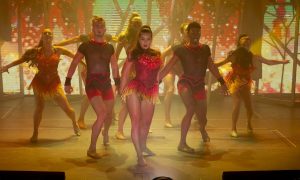

Pingback: Finding The Best College Dance Program for You | BalletScoop by the ClassicalBalletTeacher